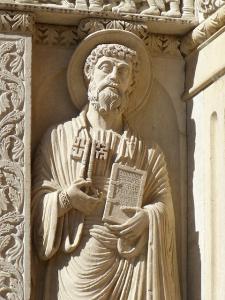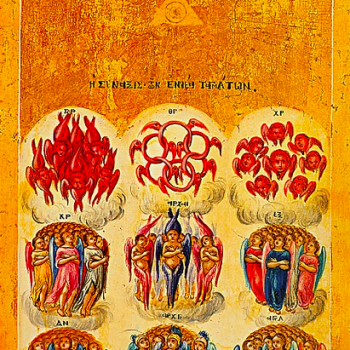If you’re wondering what or whomst I’m talking about, America Magazine recently posted an article titled “I’m a Catholic priest. But please don’t call me Father.” As it happens, this sort of thing is one of my many berserk buttons, so I read the thing and decided to reply. Let’s dive in.
Preliminaries

I actually did wrestle with whether to write “Fr. McDermott” or “Jim McDermott” in the title here. Being obnoxious is fun, of course, especially when we have a pretext to be obnoxious to authority figures.1 I’m not even certain it’s always a bad thing. Indulging my Chestertonian side for a moment, there’s a kind of democratic sentiment in being obnoxious. It’s sociable, the way a school fight is sociable—jocks brag and bully because they care what others think of them; more austere forms of pride, like the goody-two-shoes and the nerd prefer, are “above it.” And in a more theological vein, there is such a thing as just and necessary rebuke, which will often feel obnoxious to the rebuked.
Still, it’s not as though Fr. McDermott is likely to read this—he doubtless has better things to do with his time than keep track of every reply-rant from strangers on Twitter—or likely to be persuaded by it if he did. Which means that thinking of a post like this as “rebuke” is, let’s say, far-fetched. “Pandering” is a much more plausible description.
And yet, there’s the title. I hope the better reasons for my decision are clear by the end of this; the worse ones, I just explained.
But I want to say one other thing too. I don’t know Fr. McDermott from Adam, but, judging just from this piece, I think2 he’s writing from a place of genuine humility, and with real concern for the well-being of the laity. I think the direction he’s taken those things is misguided, hence my post, but he’s reacting to real problems in the clergy. Indeed, he’s naming the problems out loud and not trying to shift the blame, which is a rarity!
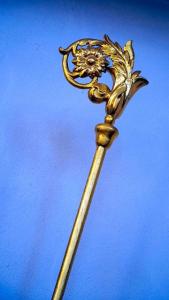
With all that out of the way, let’s turn to the article. (And if you are reading for some reason, Fr. McDermott, I hope you find it edifying, even if only as an illustration of why some laymen respond this way.)
The Priesthood Is Not a “Job”
I have been a priest for almost 20 years, and I have never liked being called “Father.” I dislike it so much that each year on Father’s Day some mischievous members of my family purposely make a point of calling … I know: What’s the big deal? It’s like calling your physician “Doctor.” … It’s just a job title.
“What’s the big deal?” was very much not my immediate question. My, much ruder, reaction was more along the lines of “Why should I care whether you like your title or not?”
The reason I feel this rude reaction is tied into the first and biggest problem with this piece: “Father” is not a job title, because the priesthood is not a job. “Father” is not a courtesy, but a description of what a priest is there for. Fathers don’t clock out of fatherhood at 5 p.m. Fathers give their children life; it is a relational quality of your being, not a profession, and treating it like a profession is totally inappropriate. Yes, priests get paid, but that’s because they need to eat, not because there’s a connection between fatherhood and wages. And I’m sure a lot of people (both within and outside the Church) do think of it exactly as a mere courtesy, but that misunderstanding is just that, a misunderstanding. Getting rid of the occasion of misunderstanding is a very poor substitute for correcting error. If a second-grader is having trouble distinguishing between minus and division signs, the solution is not to get rid of the signs.
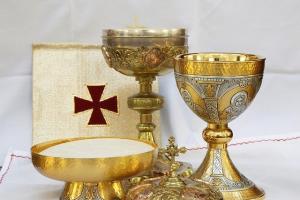
It Isn’t About You, Father
Part of my trouble with the term is the amount of respect that automatically comes with it, the authority that is instantly granted to priests. After I was ordained, Catholics who were much older and more accomplished than me, people who did not even know me, were suddenly talking to me with a deference I could not understand and definitely did not deserve. … And it’s not just strangers who adopt the term either. It’s college pals … relatives who once emptied my diapers … These are people who know me far too well to treat me like I’m anything special.
True, you’re not; that’s why they’re addressing you like any other priest, and frankly, it’s not your place to object to that. If I kiss your ring, it’s to honor the office of Jesus that you bear, not yourself.
I’ve always found this passage from C. S. Lewis3 illuminating on the topic of ritual—and since “Father” is among other things a ritual title, I think it’s relevant. Speaking of the Middle English ancestor of the word solemn, Lewis writes:
You must think of a court ball, or a coronation, or a victory march, as these things appear to people who enjoy them; in an age when everyone puts on his oldest clothes to be happy in, you must re-awake the simpler state of mind in which people put on gold and scarlet to be happy in. Above all, you must be rid of the hideous idea, fruit of a widespread inferiority complex, that pomp, on the proper occasion, has any connection with vanity or self-conceit. A celebrant approaching the altar, a princess led out by a king to dance a minuet … all these wear unusual clothes and move with a calculated dignity. This does not mean that they are vain, but that they are obedient; they are obeying the hoc age [“thus do”] which presides over every solemnity. The modern habit of doing ceremonial things unceremoniously is no proof of humility; rather it proves the offender’s inability to forget himself in the rite, and his readiness to spoil for everyone else the proper pleasure of ritual.
I do not mean this as a comment on Fr. McDermott’s ego (and still less on his liturgies, of which I know absolutely nothing). My hunch is that he is a naturally modest person: naturally modest people who gain positions of authority or prestige are frequently uncomfortable about the fact, and trying to downplay the trappings of the position is a natural way to express that discomfort.4 On the whole, that’s an attractive quality.
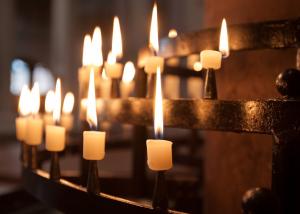
But modesty is not the same thing as humility. Humility is not primarily about having a bad opinion of yourself, or in fact any opinion of yourself, even an accurate one: it’s about taking your focus off yourself. Which is hard to do! Especially since we do have to do things like examine our consciences now and then. But the point is, a perpetual fretting about our own unworthiness for [insert literally anything here] is a distraction, a parody of humility. Like I said, I genuinely think Fr. McDermott has good motives here, but mistaking modesty for humility is a really easy, really common mistake among well-meaning people.
This is part of the reason that, even though ostentatious forms of reverence like kissing a priest’s hand are (1) obsolete and (2) apt to be attacked by people who rightly hate clericalism, I wish we’d bring them back. I’d like to have concrete ways to reverence the priesthood that don’t involve acting as though all priests deserved trust and respect as people. Or more bluntly, I wish I had the option of kissing a priest’s hand instead of his ass.
All Fathers Are Bad
While I take being a priest seriously, I’ve also lost jobs, screwed up friendships, and recently received my Ph.D. in nursing a grudge. … I’d like to think I’m worth having a conversation with. But your confidence? Your faith? Take your time.
This is an eminently reasonable attitude, and it has nothing to do with whether it’s appropriate to address you as Father. I’ve never met a dad who didn’t have these flaws, or flaws just like them.
I think not calling me Father is in your best interest. Before I got ordained, I worked as a teacher at Red Cloud Indian School … Few of them rushed to put too much faith in a new Jesuit coming to work there. They’d all had too many past experiences of the dumb things we say and do … Instead, I had to earn their respect.
Except for the first sentence, this too is very reasonable and fair-minded. Moving along.
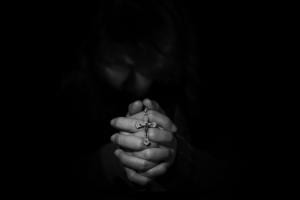
We’re raised to think that priests are worthy of the utmost regard, but in fact people in the church today have just as many reasons to be cautious or skeptical of clergy as my students did of me. The church’s history of abuse and cover-up, clerical expressions of privilege and stories of clerics putting ideology or political agendas ahead of pastoral care all have undermined the legitimacy of our role as leaders. … Make us prove we’re worthy of your trust before you give it. That’s not being judgmental or unfair, just prudent. Your choice to take it slow might even empower those around you to realize they have the right to ask the same.
And here’s where the problem re-emerges. The idea behind this advice—that authority figures need to earn their authority, especially moral authority—is good, but the advice is bad. Because whether you address a person as “Father” or not actually does very little to correct clericalism; it’s snipping at a symptom, not digging up the cause. (I grew up an evangelical, where calling ministers “Father” is downright taboo, and I can assure you that they do not lack their own long history of issues with clericalism or clerical abuse!)
Some Fathers Are Very Bad
In fact, it can make one of the very problems Fr. McDermott is worried about worse. Grooming takes a lot of forms, but its common thread (dictated by its end goal) is trying to break down normal social barriers. With authority figures, who are usually the ones in a position to groom people, that often takes the form of being too chummy with those under their care. Now, obviously not everyone who prefers to be informal is a predator! Nor do all predators use informality to gain trust. But it does happen. And chipping away at standard social norms is apt to make it easier. (Sometimes social norms are so badly in need of reform that we accept that risk, as we accept the inherent risk of being in a wreck by getting into a car; but I don’t think calling priests “Father” needs to be minimized in the first place, and even if I did, I’d have a hard time believing it was this important.)
One of my Twitter mufos (I forget who) pointed out that one of the things abuse preys on is the intense desire of young people to be taken seriously by adults. Being invited to say “Tom” instead of “Father Smith,” as though the two of you are on equal footing, might well feel like being taken seriously.5 But the truth is, there’s always an imbalance of power between clergy and laity, even in churches that don’t believe in apostolic succession. I think it’s safer to acknowledge that directly and consistently.
The Sacraments Are the Point
Here’s the other thing I don’t like about being called “Father”: The term draws an unhelpful distinction between we who are priests from everyone else … Religious education instructors are generally not called “Teacher”; the Social Ministries Director of your parish is not “Disciple” or the maintenance person “the Czar of Clean.” So why give me a title? My first name works just as well as theirs do. And even though I’m standing in the place of Christ during sacramental activities, our belief remains that it is Christ doing the work, not me. And aren’t all of us called to be Christ in the actions of our daily lives? My connection with God is not somehow magically deeper than yours.
Personally I see little against addressing maintenance personnel as “the Czar of Clean”—though the traditional title sexton is more euphonious (and, as is the venerable custom with church language, gives thirteen-year-old boys something to snicker about). But that aside, I have two big problems with this.
One is the tone. “Sure, I administer the sacraments, but apart from that,” coming from a Catholic, sounds extremely weird to me. Or rather, it sounds bad in a way that I wish sounded weird, because you hear this sentiment all the time. Phrases like “Catholic in name only,” or “[Non-Catholic whom I like] is more Catholic than [Catholic/group of Catholics whom I don’t like],” are commonplace. And they are heresy.
I’m dead serious. I don’t use the word heresy lightly; this is one. Not on a level with denying the Real Presence or the Immaculate Conception, maybe: those things have a gravity, and require a clarity of intellect and purpose, which casual insults do not.6 But the whole idea of the sacraments is that they are God’s method of working upon us, not our way of reaching up to God. And one of the essential things about baptism in particular is that it leaves an indelible mark on the soul: a baptized person never ceases to be a Catholic, not even by formal renunciation of the faith. They may be non-practicing, an excommunicate, a heretic, an apostate, a schismatic, but that mark on the soul never comes off. That, and not any other thing, is what makes someone Catholic. And greater even than this is the Eucharist—God’s personal, tangible presence upon earth. Any response to this that sounds like “Yeah, but” is inevitably going to rub me the wrong way.
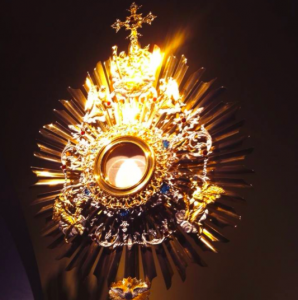
However! I’m willing to concede that I may not be reading Fr. McDermott quite fairly. There need not be, and he may not intend, the slightest irreverence for the sacraments in wishing to downplay the importance of priests—especially since he makes a point of the doctrine that it is Christ and not he who in fact celebrates the sacraments. And it’s surely obvious that I’m predisposed to be annoyed with him, so misreading him here is just the kind of mistake I’d be apt to make. Others will have to make that judgment for themselves; I can’t.
“One Man Esteemeth One Day Above Another: Another Esteemeth Every Day Alike”
The other issue I have is rather different, and much more practical. It comes in the line above, “Aren’t all of us called to be Christ in the actions of our daily lives?” He picks this thread up again a bit further on:
I’m not trying to dismiss the gift that a good priest can be in a community. I just want to point out, so is a good woman religious, a good music director, a good high school theology teacher, a good deacon, an active women’s auxiliary and that one older couple who has been coming to the parish for the last 60 years. Clericalism has been a part of our church for so many centuries that I think it’s very hard for us to recognize the full extent of it …
All true. But this all seems to hint that highlighting one role implies neglecting others. I don’t think that’s true.
Returning to my Protestant upbringing, there were a number of stock arguments we used against Catholicism7; one of them was that using symbols drew people’s attention to the symbol and ignored the wider reality. Highlighting one sacred day would make you forget that all days belong to God. The Catholic priesthood suppressed the reality that all believers are priests. And I’m actually not going to just make fun of this trope, because it’s quite true that symbols can become substitutes for reality instead of windows into it. We’ve all met people, or felt the tendency in ourselves, for whom Sunday is “the Lord’s day” and therefore the other six belong to us. Maintaining attention is one of the permanent problems in the spiritual life; its named is “sloth” before it is solved, and “perseverance” afterwards.
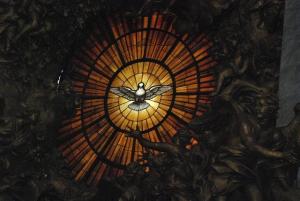
But I’ve found by experience that those who try to do without symbols (with a very few exceptions) don’t fare any better at the task of maintaining attention, and often do worse. One of the great things about symbols and rituals, especially recurring ones, is that they’re always giving us a fresh chance to re-establish our focus. Advent, Great Lent, and St. Michael’s Lent furnish us with reminders of the daily duty to repent from the heart; the commitment of monks and hermits to poverty is emblematic of the generosity and detachment we should all have toward our possessions. We Presbyterians talked a big game about “the priesthood of all believers,” yet it wasn’t until I had started to accept a more Catholic idea of what it meant to be a priest that the universal priesthood really meant anything to me.
In short, I agree with Fr. McDermott about the reality and badness of clericalism. But I don’t think the strategy he’s proposing is actually going to do what he wants it to, and I think there’s some reason to think it may make things worse.
The Truly Unhinged Bit
I’m sure that most people think they are just doing what they’re supposed to when they call me Father or when they refrain from telling me that my homily was terrible and, by the way, I look like an unmade bed. But really I could use their help to keep me from making those mistakes.
Oh dear. Honey, no. I’ve worked retail. I’ve met people who don’t refrain from telling you to your face that you look like an unmade bed, and a whole lot more. You don’t want that, and it will not help you stop making mistakes. Trust me.
Footnotes
1This seems to be one of the things trads and leftcaths share, rooted in our shared belief in the dignity of the priestly office. This inspires a desire to show reverence that’s often frustrated by the actual behavior of the hierarchy; so when either of us sees a chance to vent our frustrations in a way our conscience won’t actively prevent, we do it with glee.
2I.e., this is the impression I get. I’m not saying I’d commit myself to defending the claim.
3Of course I’m going quote C. S. Lewis (A Preface to “Paradise Lost,” for those of you scoring at home). Liking C. S. Lewis may be the normiest grew-up-a-twentieth-century-American-evangelical thing on earth, but sometimes the normies are right.
4This is badly exacerbated by the fact that he’s an American: Americans tend to have an almost superstitious dislike of ritual and formality (except for nationalist purposes); we deride them as “undemocratic.” It may be the single silliest aspect of our culture.
5On a much less important note, I also think the widespread idea that all children like it when adults are chummy with them is just wrong. Some do. But speaking for myself, and I don’t think I’m alone in this, nothing annoyed me more when I was young than the “talking to a child” squat some grownups would pull when talking to me—like it’d make me forget they were taller than me or something.
6In technical language, the outlook I’m describing is material heresy, i.e. the outlook itself contradicts the Catholic faith. It is not necessarily formal heresy, i.e. deliberate, culpable defiance of the teaching office of the Church. Material heresy inheres in ideas (the “matter” of belief), and it’s not unusual for a person to be a material heretic for all sorts of natural or even innocent reasons. Formal heresy, on the other hand, is a function of the mind and will, and is therefore intrinsically sinful.
7In retrospect, it’s extremely funny to me that we bothered with this. We spent so much time in our own spaces explaining to each other what was wrong with Catholicism and why—and doing so not only out of earshot of any Catholics, but without verifying anything we heard or said from actual Catholic sources! The lack of confidence in our own creed is breathtaking.


